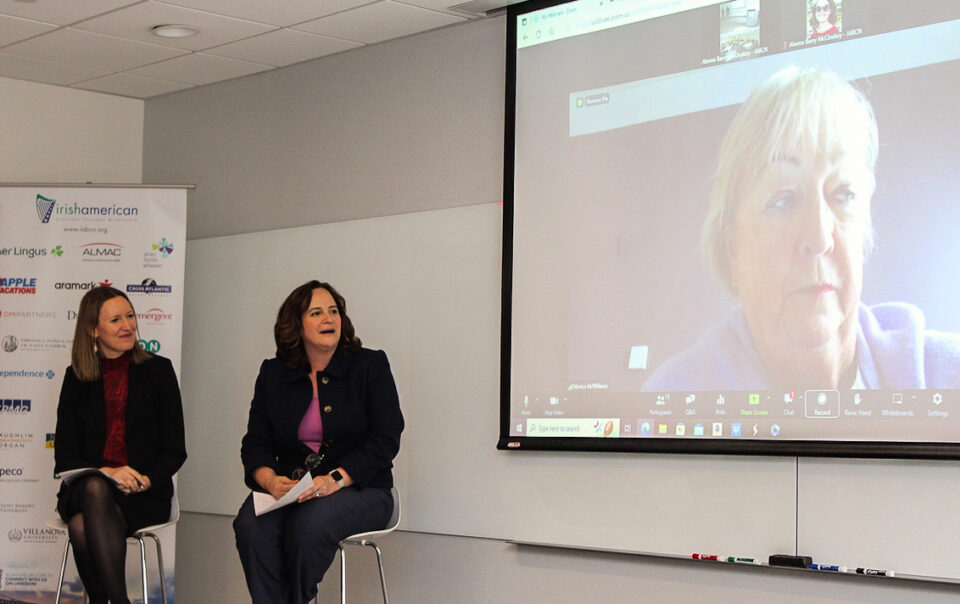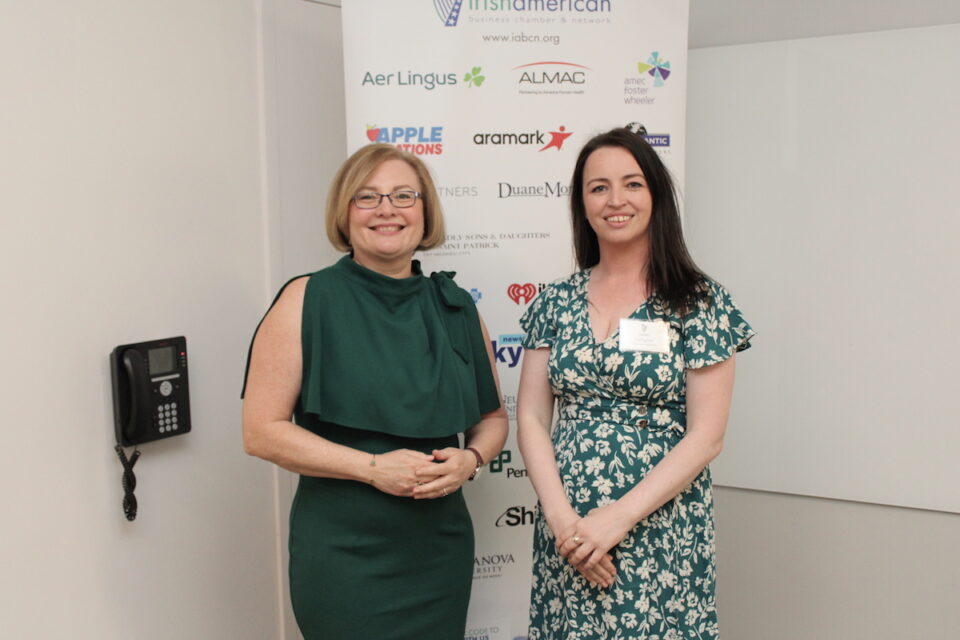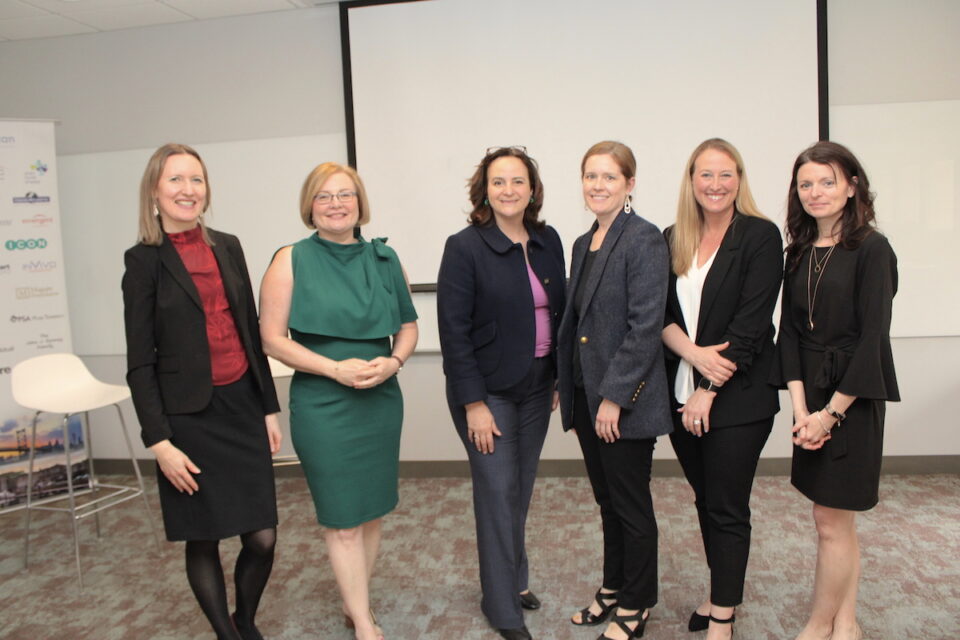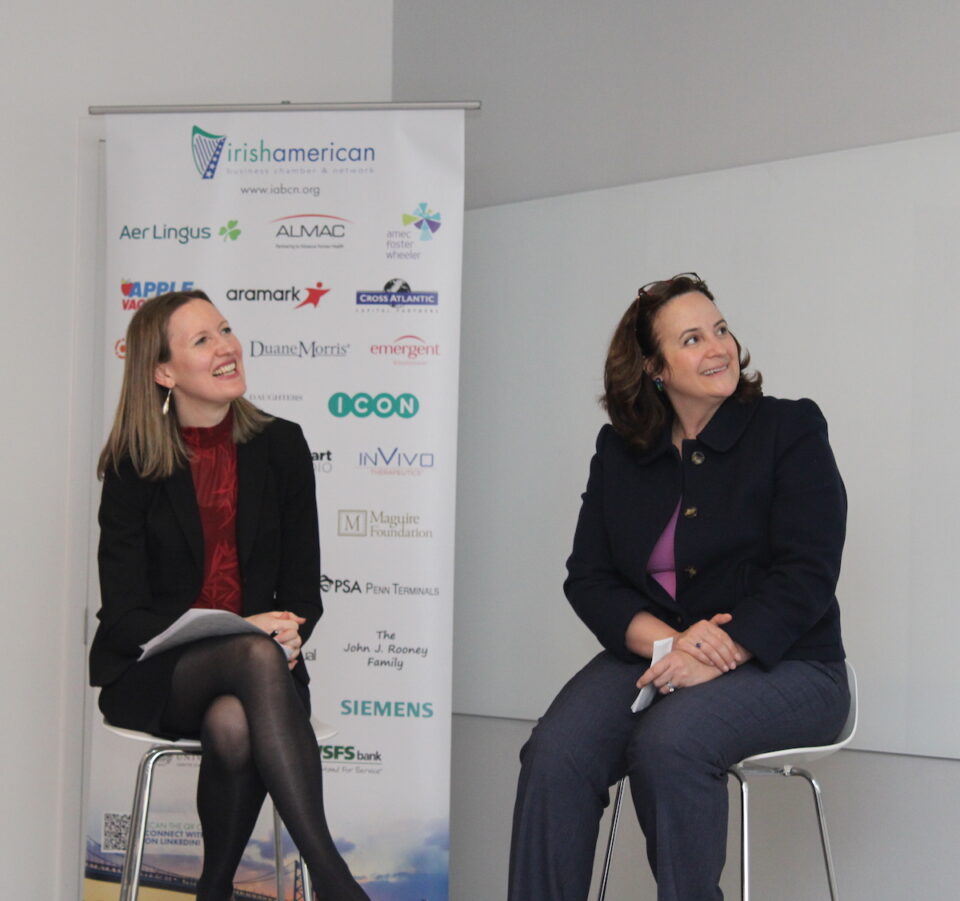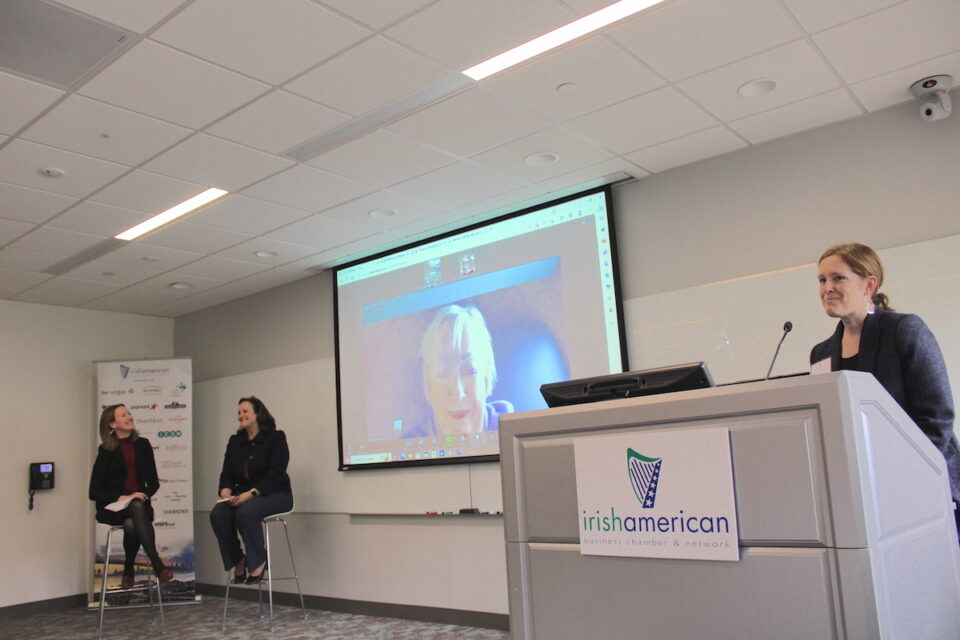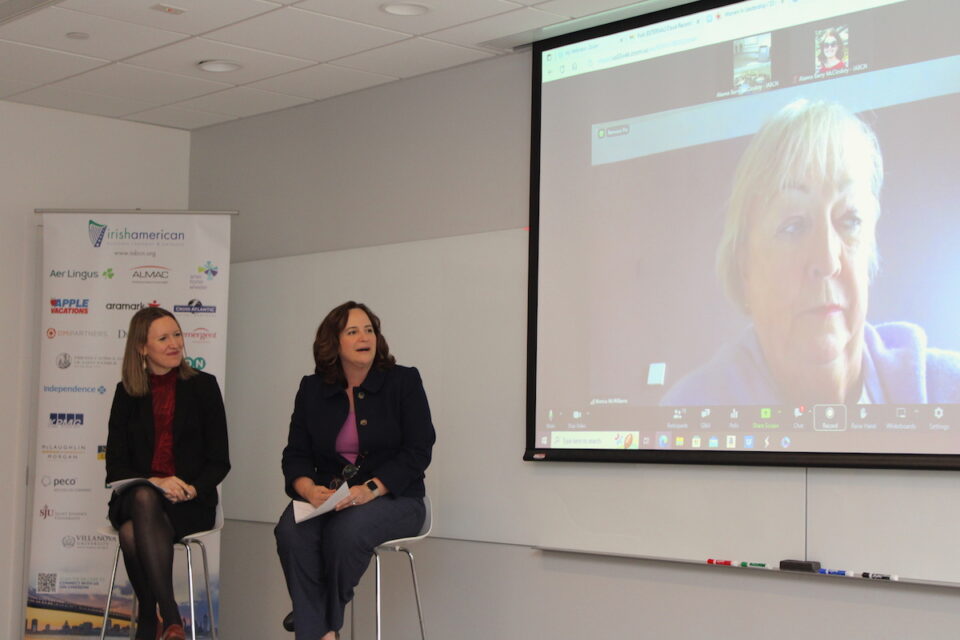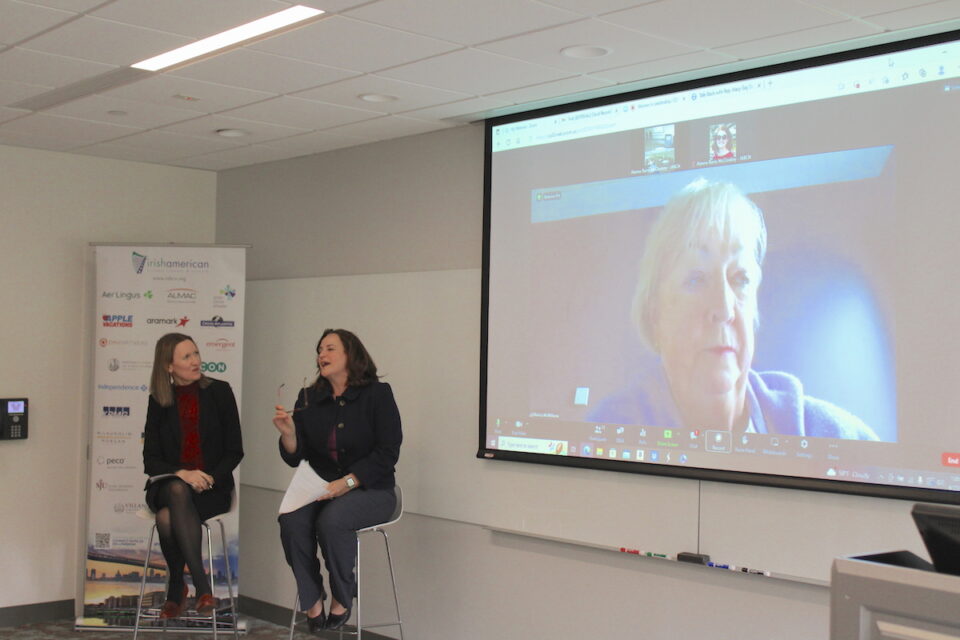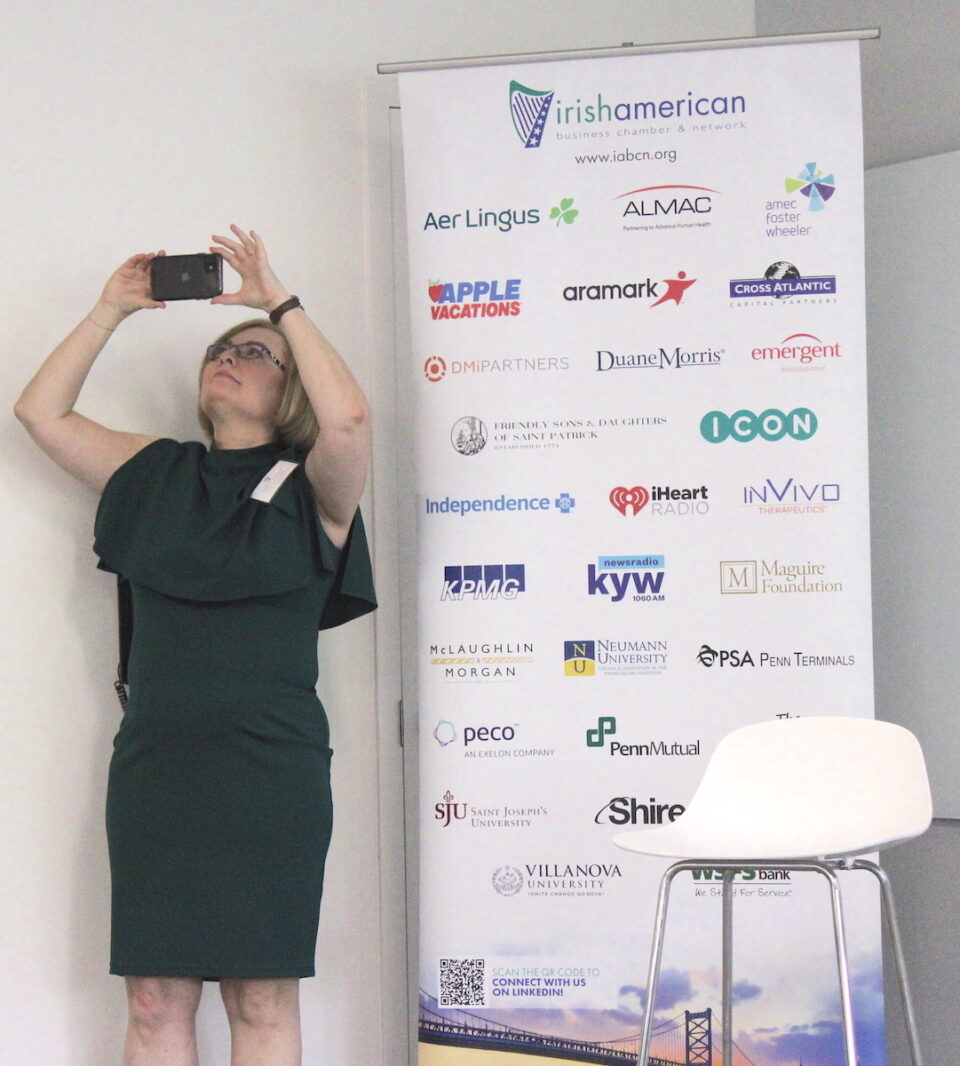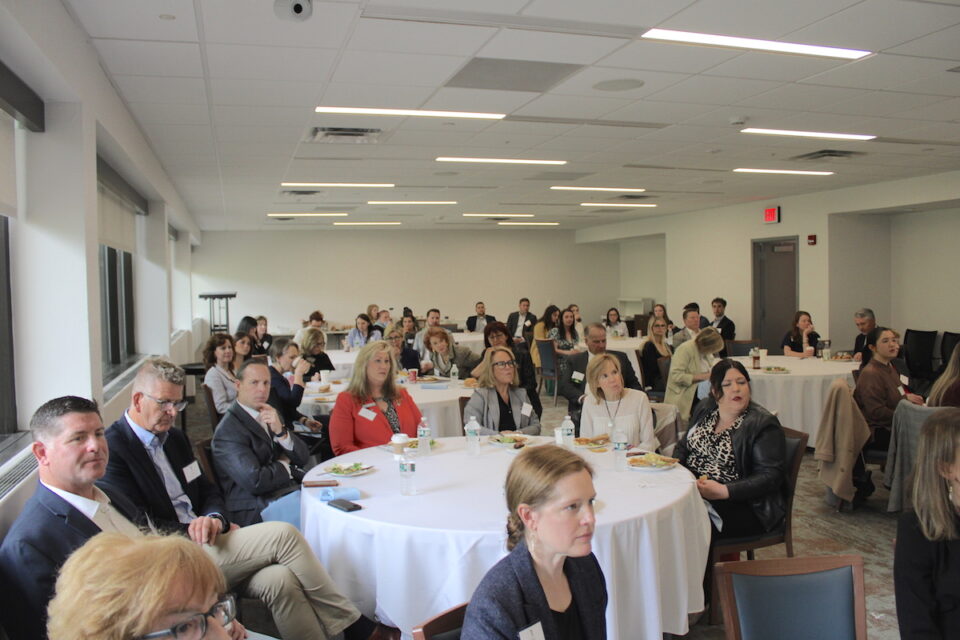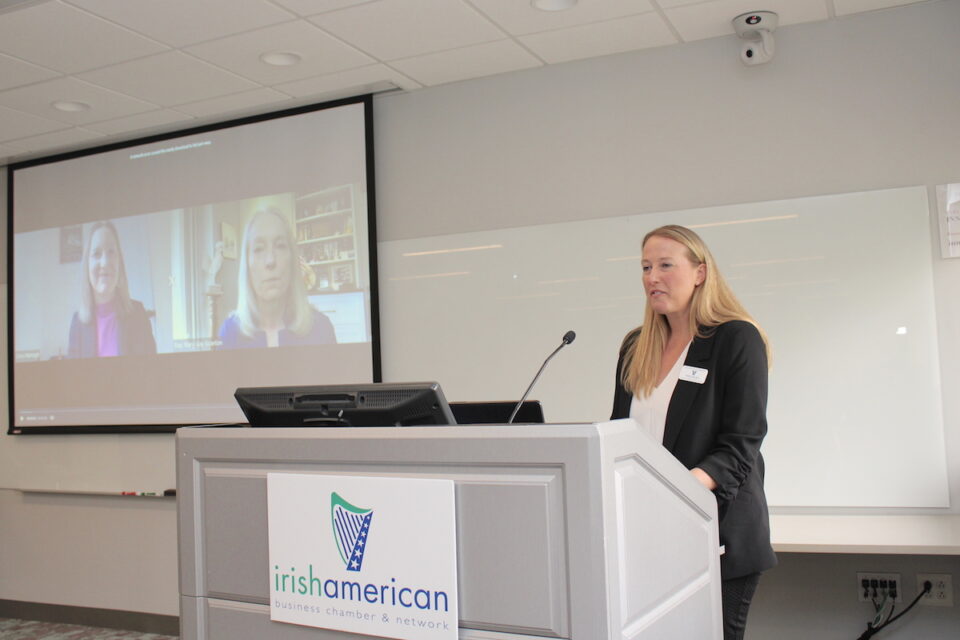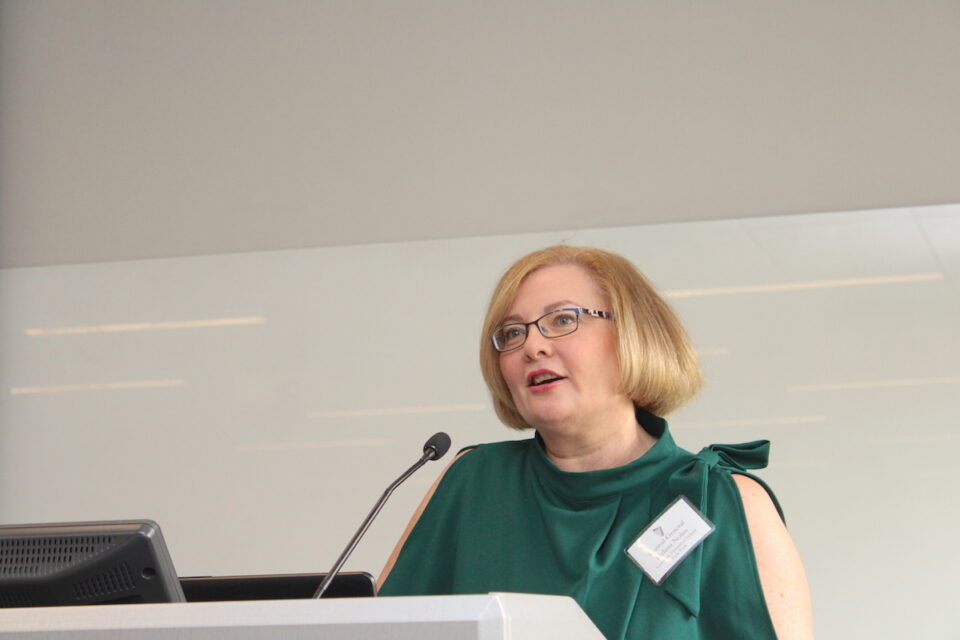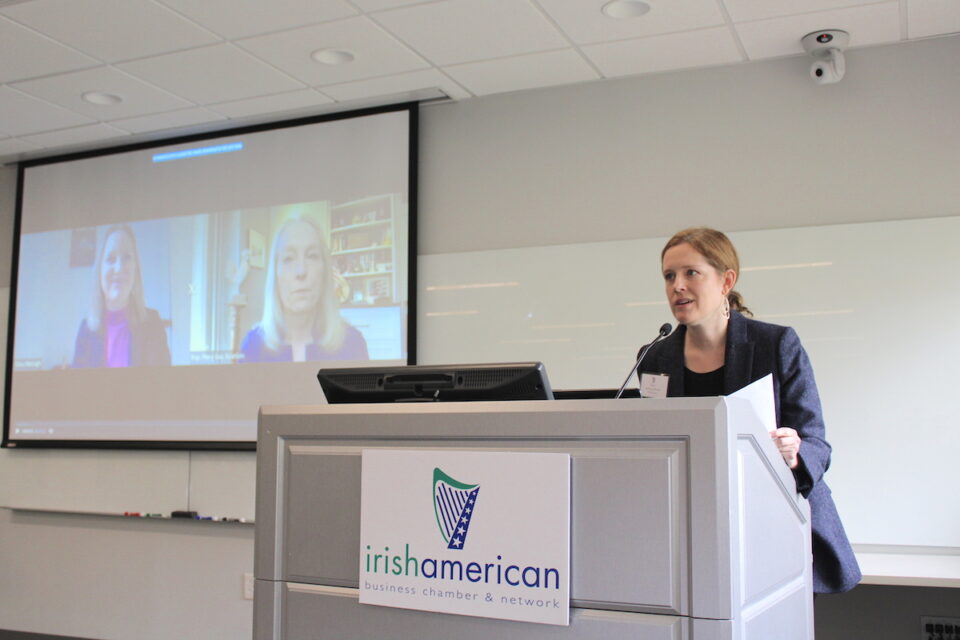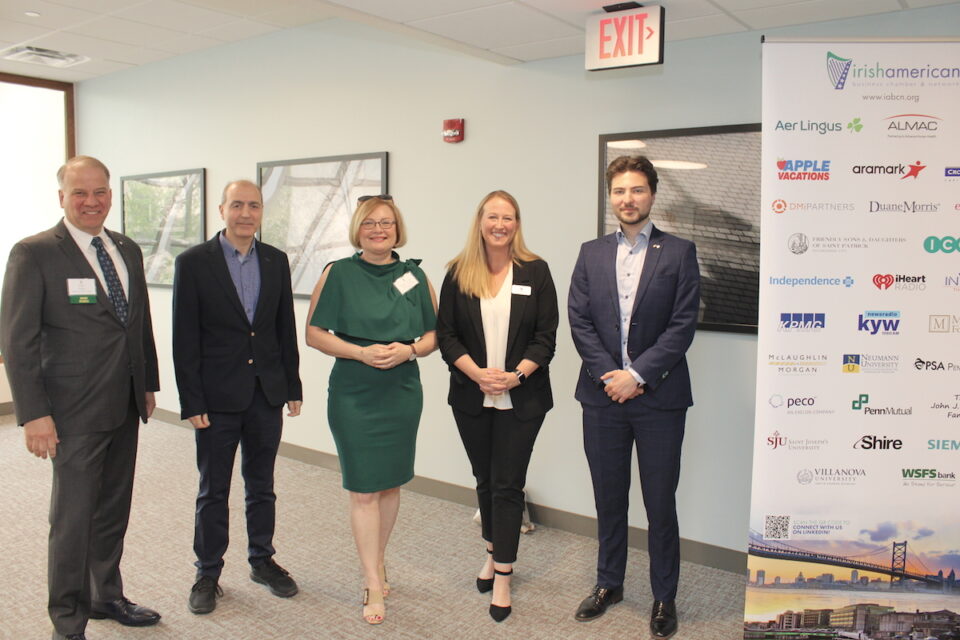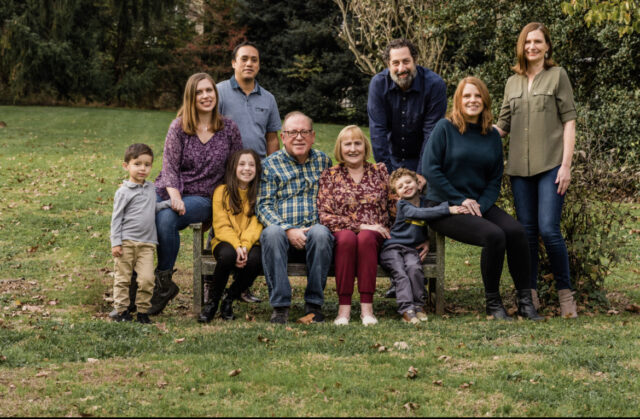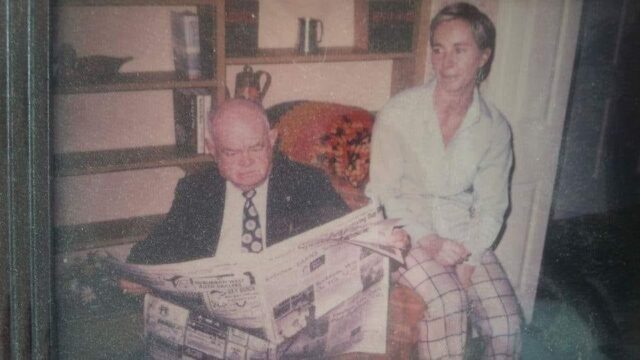Photos by Tom Keenan
At a youth conference in Northern Ireland recently, a young woman taking her O levels in history approached Monica McWilliams, co-founder of the Northern Ireland Women’s Coalition political party and a signatory of the Good Friday Peace Agreement in 1998.
The student had a complaint. The only reference to women during “The Troubles” in the history curriculum, she told McWilliams, “was that women handed out tea and buns when the British soldiers arrived in Northern Ireland.”
This was not particularly shocking to McWilliams, an Ulster University professor (now retired) and longtime peace and women’s rights activist whose study of domestic violence and work with abused women preceded her historic—whether it would be referenced or not—foray into Northern Irish politics.
“The only woman who did get a mention was [Irish civil rights leader] Bernadette Devlin McAliskey who was a student of mine, and she once said, it’s not that women were written out of history but that we were never written into history,” she told members of the Irish American Business Chamber and Network’s Women’s Empowerment Committee via Zoom at the Inn at Villanova University on Thursday, April 27.
The event was co-sponsored by the Villanova University Irish Studies Program and the Anne Welsh McNulty Institute, a Villanova program that supports gender-based initiatives at the university and beyond. Irish Consul General from New York, Helena Nolan, gave the opening remarks.
McWilliams, who once described herself as “an ordinary woman in an extraordinary time,” said that women are still being left out. She said she recently “made it a point” to see the Owen McCafferty play The Agreement, about the last days of negotiations leading up to the Good Friday Agreement, which helped bring an end to 30 years of sectarian violence in Northern Ireland. It was playing at the Lyric Theatre in Belfast. “It’s an excellent play with brilliant actors, but the playwright was a little lazy that he focused only on the constitutional strands of the agreement, but there was not a single reference to the role women played during the peace negotiations.”
While the men squabbled over points of constitutional law and power sharing, the women, including McWilliams and the other co-founders of the Northern Ireland Women’s Coalition, brought the vast experience they had already amassed in cross-community relations into the negotiating room. The Coalition and most of the women’s peacemaking groups were made up of both Catholics and Protestants, unionists and nationalists, of women who identified as British or Irish, all working together for the same goal.
They often met in each other’s homes, largely because they had no one to take care of their children. “When the peace talks started, I had two very small children,” she said, “so this was an experience I had.” The women shared child care duties and took their children canvassing in the community. “My kitchen table is where w drafted most of our policies,” she said.
Having women in the negotiating room was vital, said McWilliams. “I really felt that something could go really wrong if women were excluded. . . .Women bring critical issues that wouldn’t be on the table: the importance of inclusion, the right of women to full and equal political participation, a clause we managed to get into the agreement,” she says. The women who sat at the negotiations table also lobbied to include clauses about reconciliation, victims’ rights, and integrated education.
Women, who may be reluctant because of a lack of self-confidence, to take active leadership or negotiating roles, have real world experience with both whether they know it or not, she noted. “We negotiate every days of our lives to put peace into our homes as well as our streets and our society,” said McWilliams.
Women realize that “it’s not just about peace negotiations. It’s about what sustains peace,” she said. “It’s about livelihoods, nutrition, about the things that keep families together and keep us alive.”
Her one regret, said McWilliams: “If I could go back, I would make many of these things a guarantee rather than an aspiration, and one of those was about victims of the conflict and how we would deal with the legacy.”
In fact, the British government is backtracking on some of the aspects of the Good Friday agreement, among them closing access to legal remedies for victims in Troubles-related cases.
“We’re having to work as hard 25 years later as the day when we got up from the peace table,” McWilliams told the group.
The Northern Ireland Women’s Coalition, which has since disbanded, was started to fill an obvious need by McWilliams and several other women active in peacebuilding in the war-torn communities in the six counties within six weeks after peace talks were declared. “We asked the leading political parties would there be women in their delegations and they never answered our letters,” she said. They couldn’t get either British or Irish governments to respond either, “so we rolled up our sleeves and decided to do it ourselves.”
They were not taken seriously at the time. She quoted Peter Robinson, a member of the Democratic Unionist Party who became First Minister after the Peace Agreement was signed: “The Irish woman in the past has seen herself in very much support of her man. As far as those individuals I have seen in the women’s coalition they haven’t been at the forefront of the battle when shots were being fired or when the constitution of Northern Ireland was in peril. They are not representative of the decent Ulster women that I speak to. Women should leave politics and leadership alone.”
“So if that didn’t spur us on, I don’t know what would,” she said to laughter. (She has since worked closely with Robinson on several issues.)
The women did earn some respect from their colleagues because they kept open “backdoor channels” to groups such as Sinn Fein after the political arm of the IRA was barred temporarily from the talks. In fact, the women were ultimately able to bring Sinn Fein back to the table to add an important voice to the proceedings.
Twenty-five years after the Agreement, women seem to be inching out of footnote territory. Historians now acknowledge the role they played in keeping the talks inclusive and, because of their relationships with disparate groups in the community, their success in helping to bring about approval of the peace agreement which was put to a referendum.
In fairness to the playwright of The Agreement he did include Mo Mowlam, secretary of state for Northern Ireland, as a major character, a role she played in the real life peace process. Mowlam, like the women’s peace groups in Northern Ireland, made sure she reached out personally to all involved which included prisoners of both stripes at the infamous Maze Long Kesh Prison where she encouraged Ulster Defense Association members to support the peace process. She did all this while being treated for brain cancer which eventually took her life at the age of 55.
This year, Monica McWilliams was one of the featured “Peace Heroines” in an exhibition that opened at the United Nations headquarters in New York and spent several days in April at the Commodore Barry Arts and Cultural Club (“The Irish Center”) in Philadelphia. (Her cousin, Rosaleen McWilliams Rotondi, president of the Philadelphia Derry Society, posed with McWilliams’ poster while it was on display at The Irish Center.) She was also one of 27 women, including Mo Mowlam, honored at Queen’s University Belfast at an event hosted by Queen’s Chancellor Hillary Clinton.
During the pandemic, McWilliams decided to correct the record herself by writing a memoir of the time, called Stand Up and Speak Out.
The title, she told the group, was “a reflection of the number of times I’d been told to shut up and sit down.”

